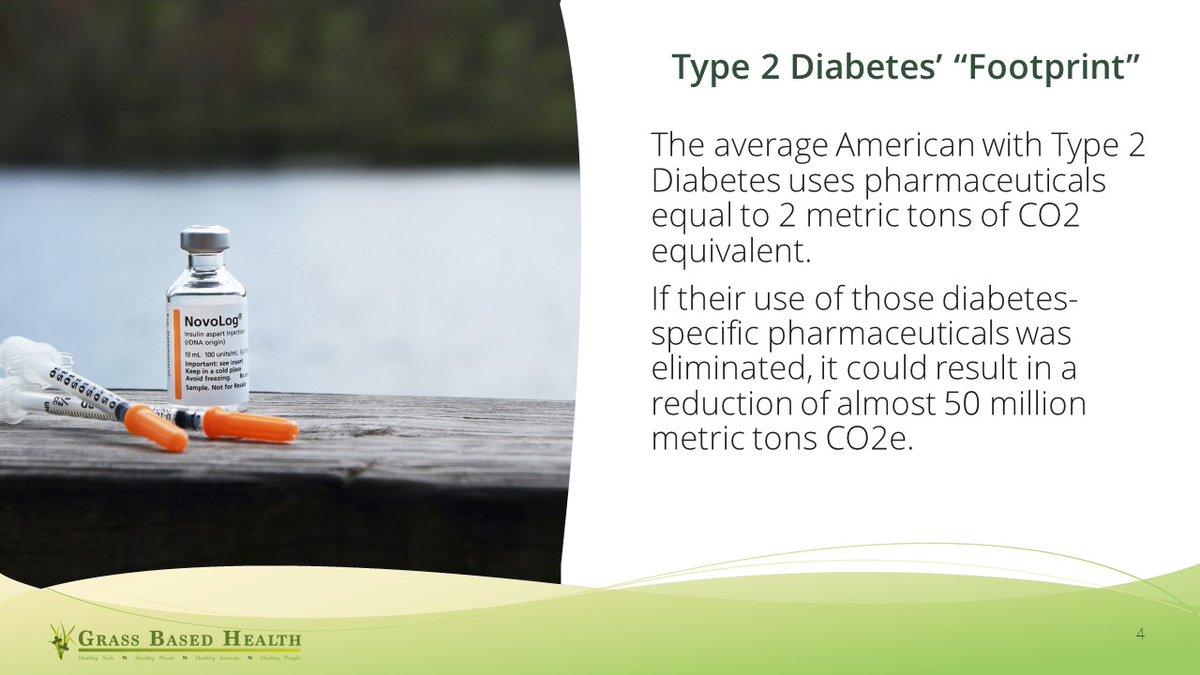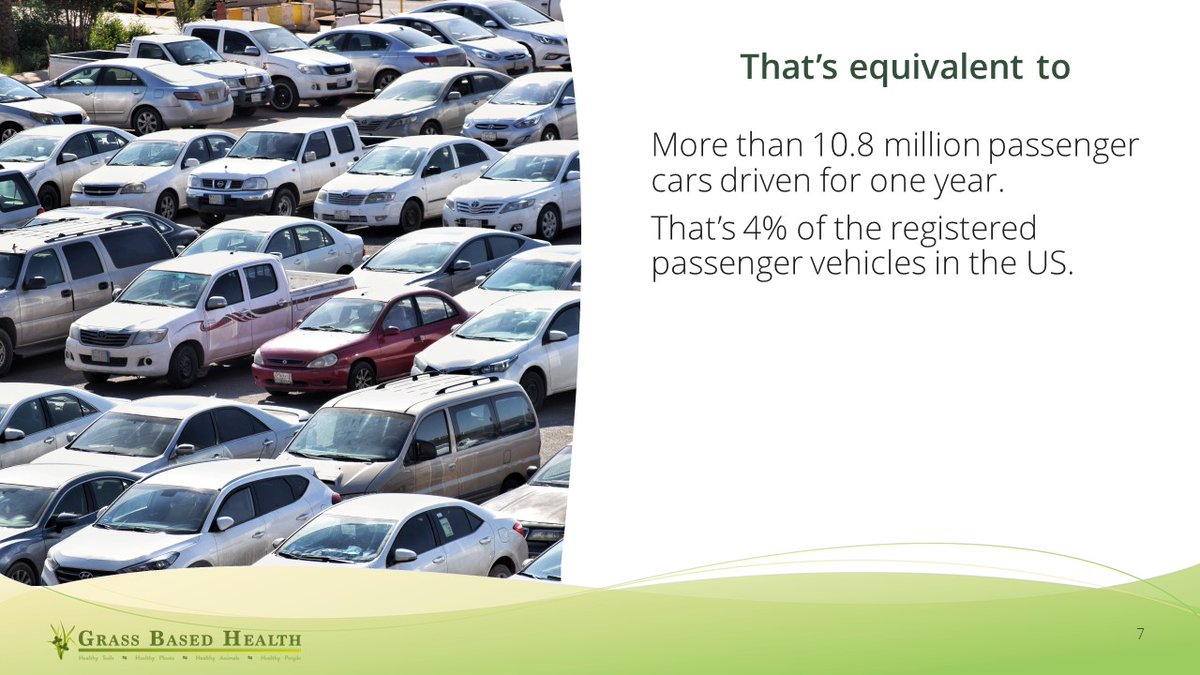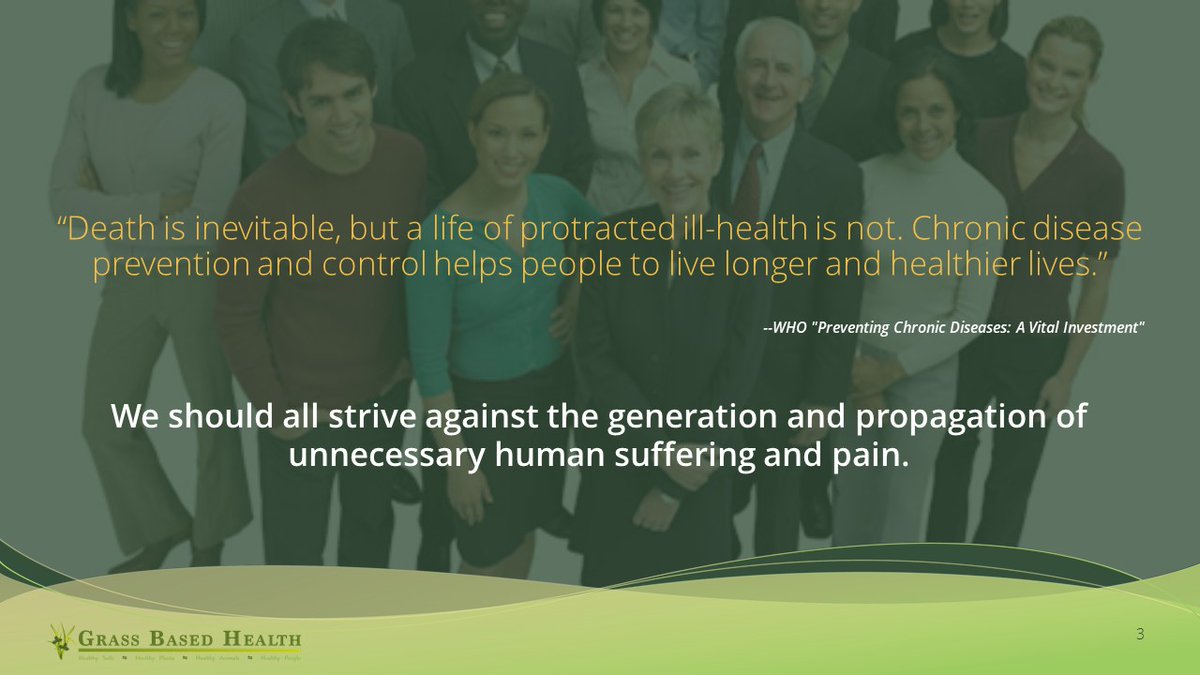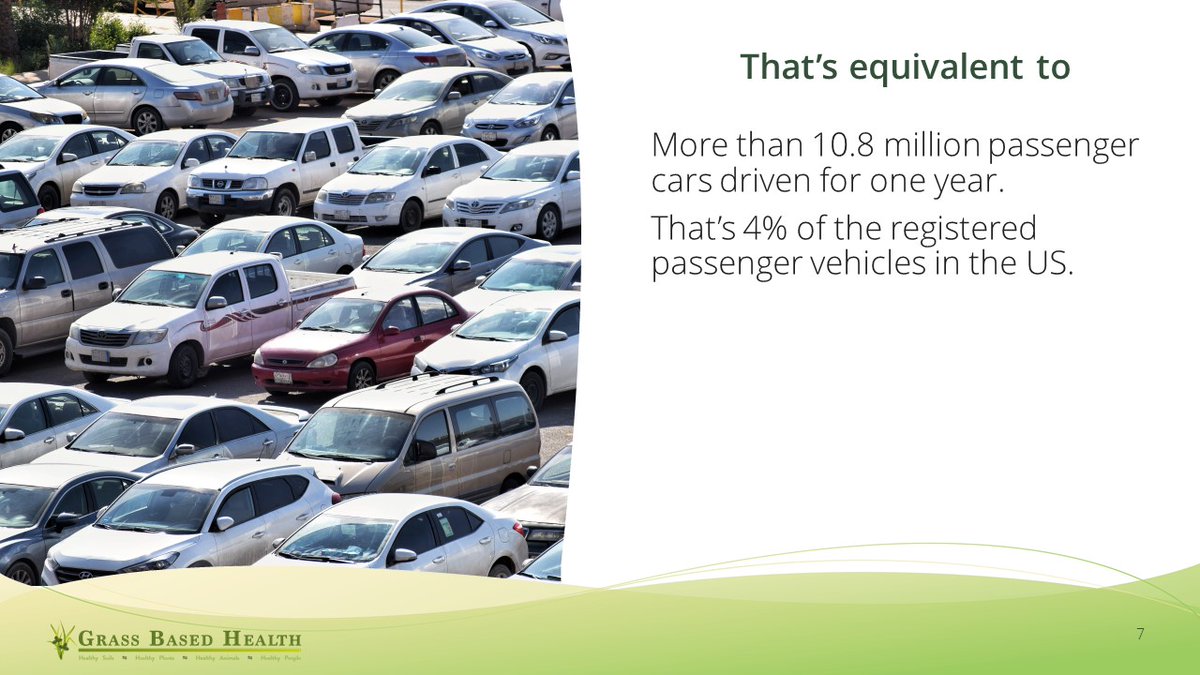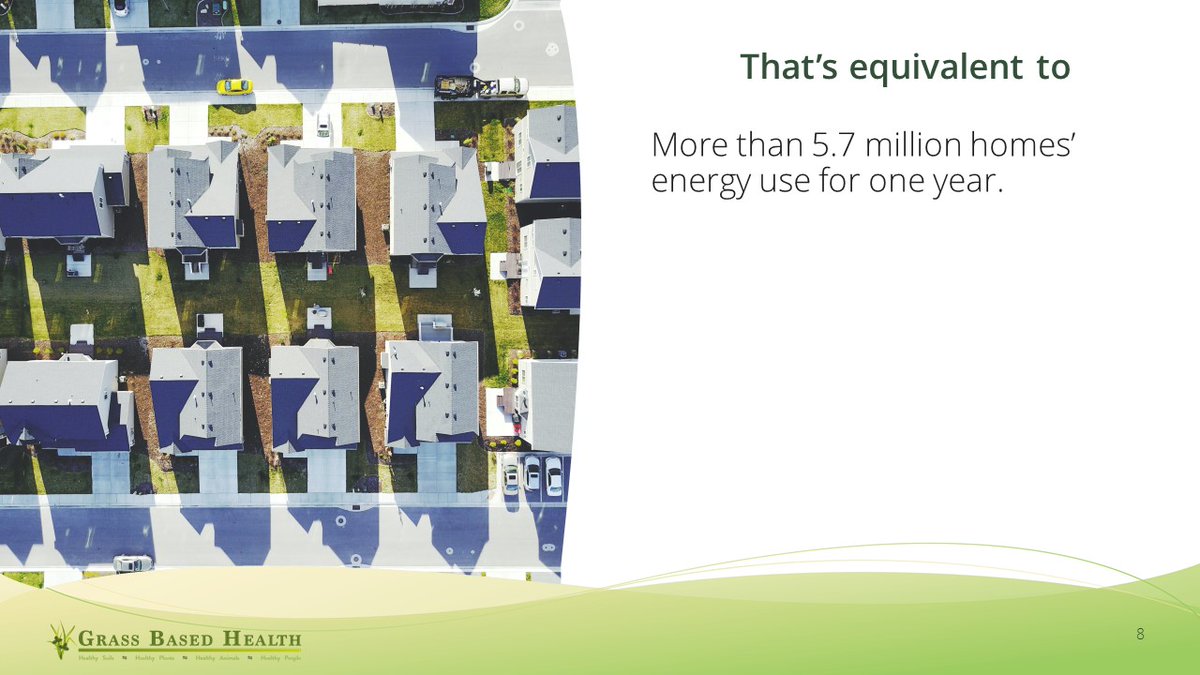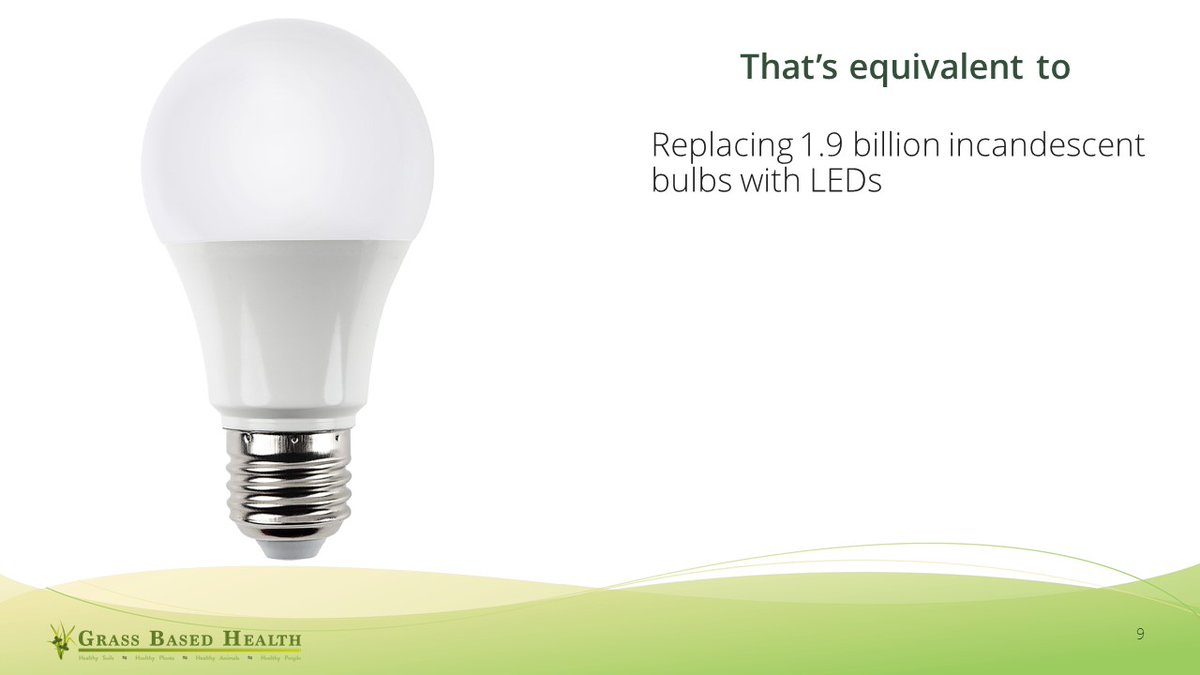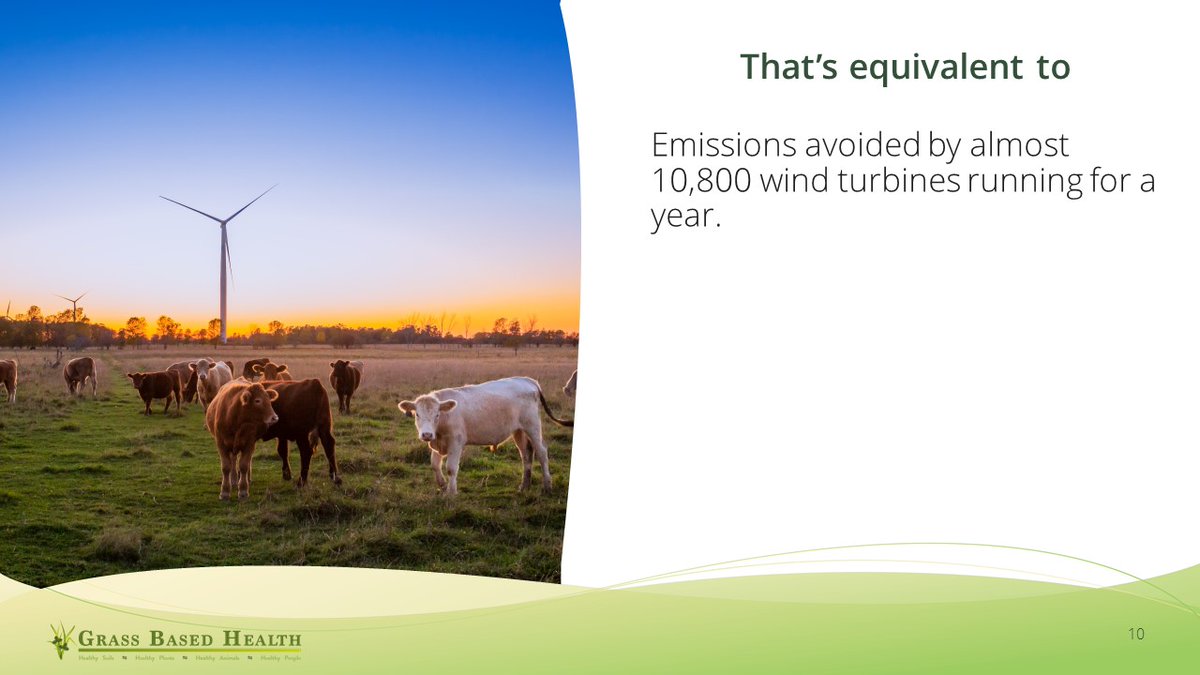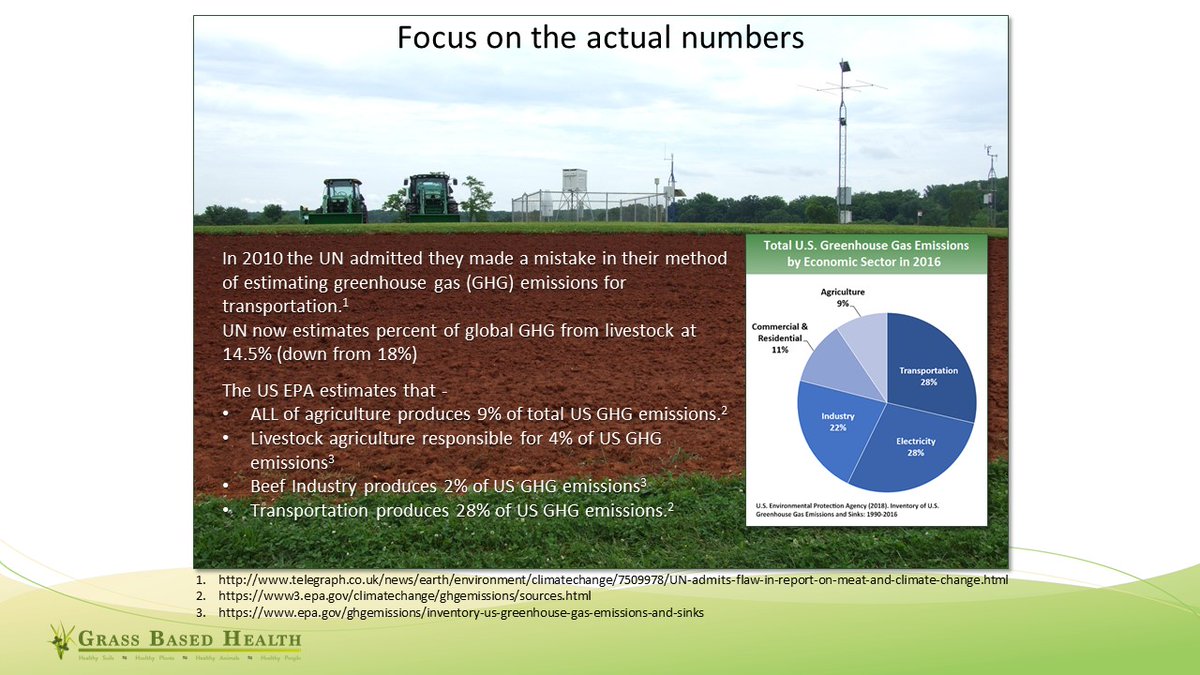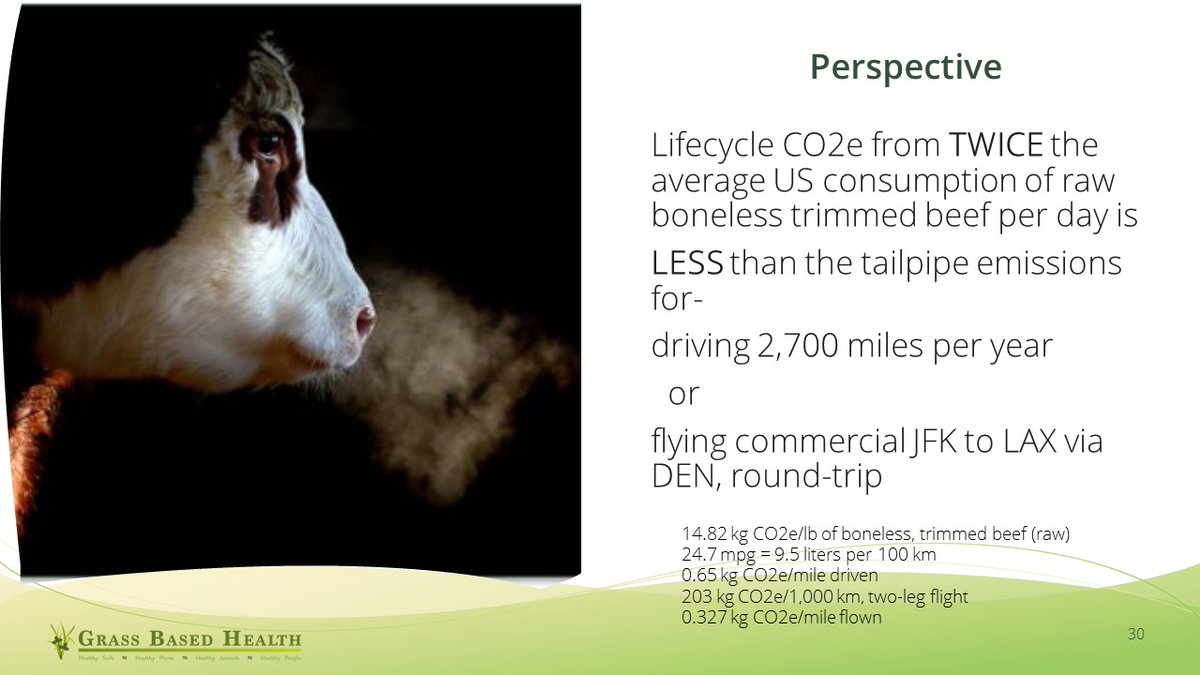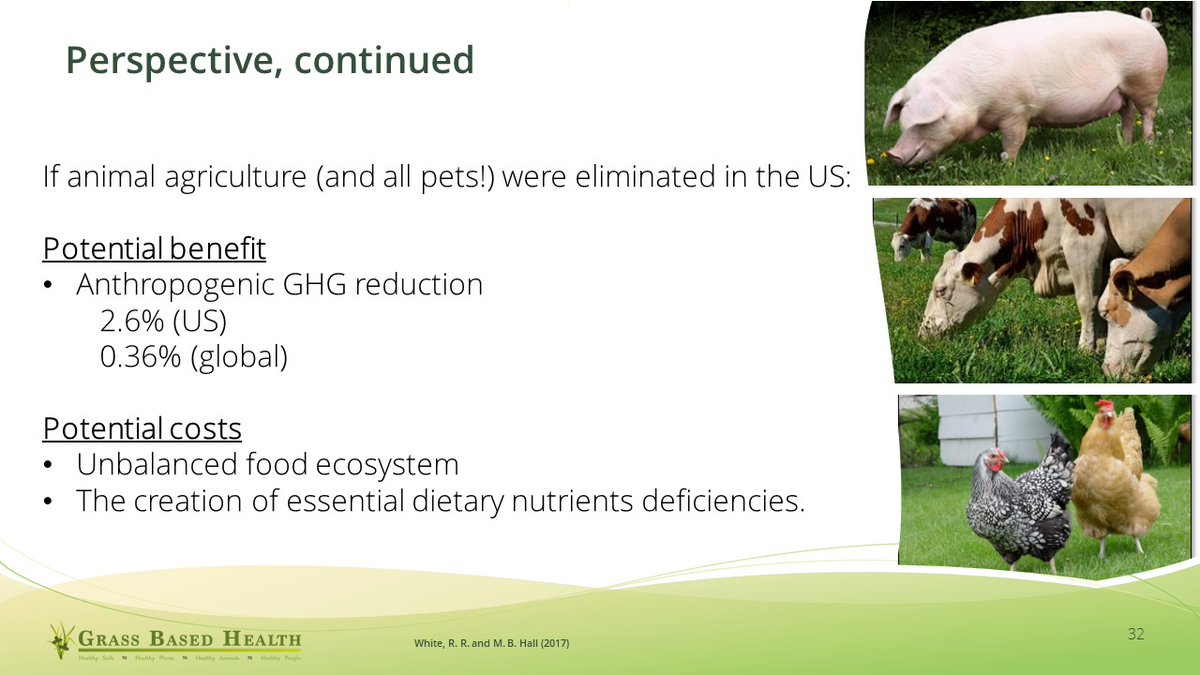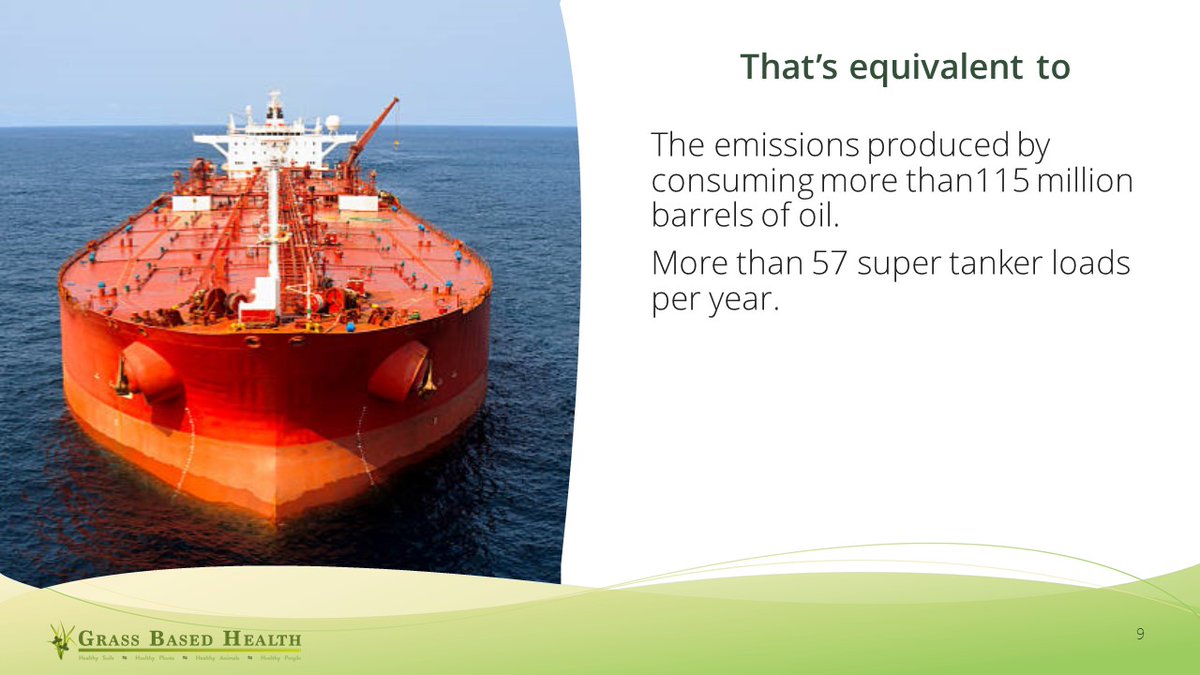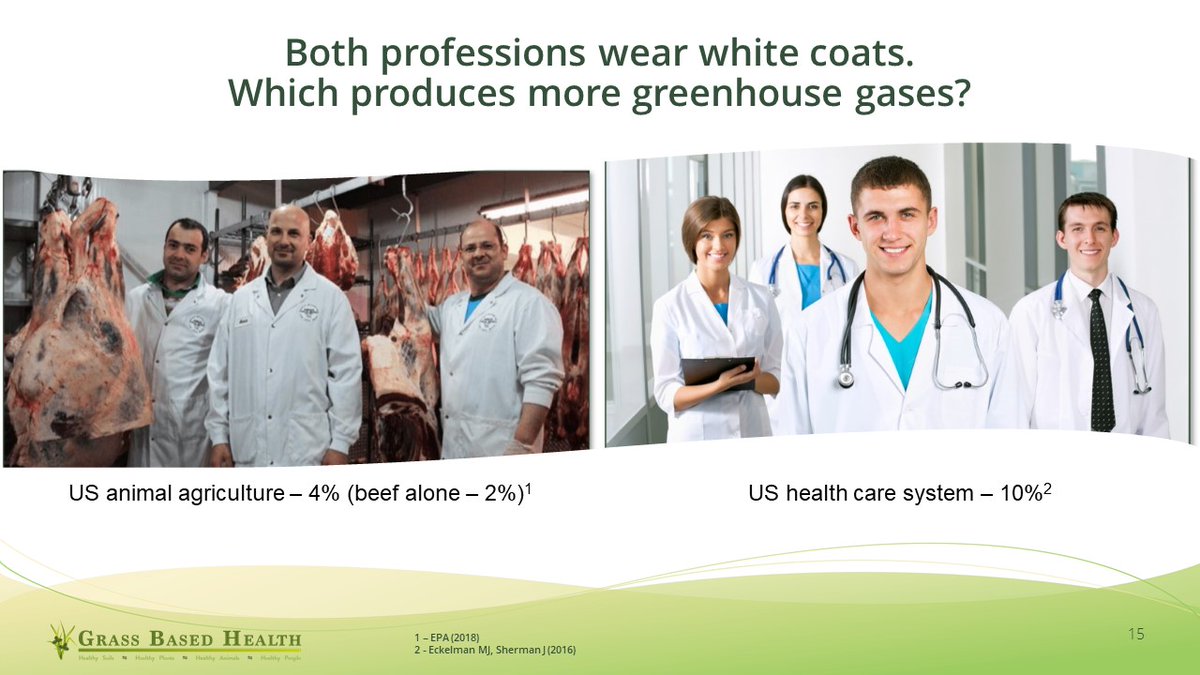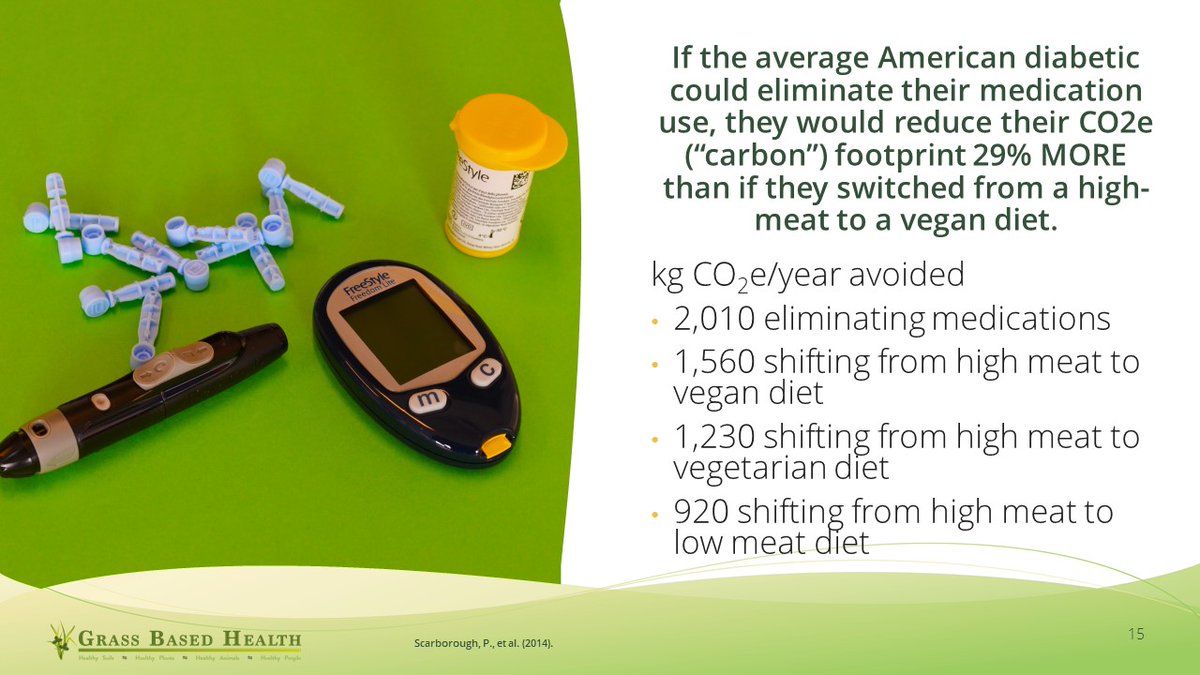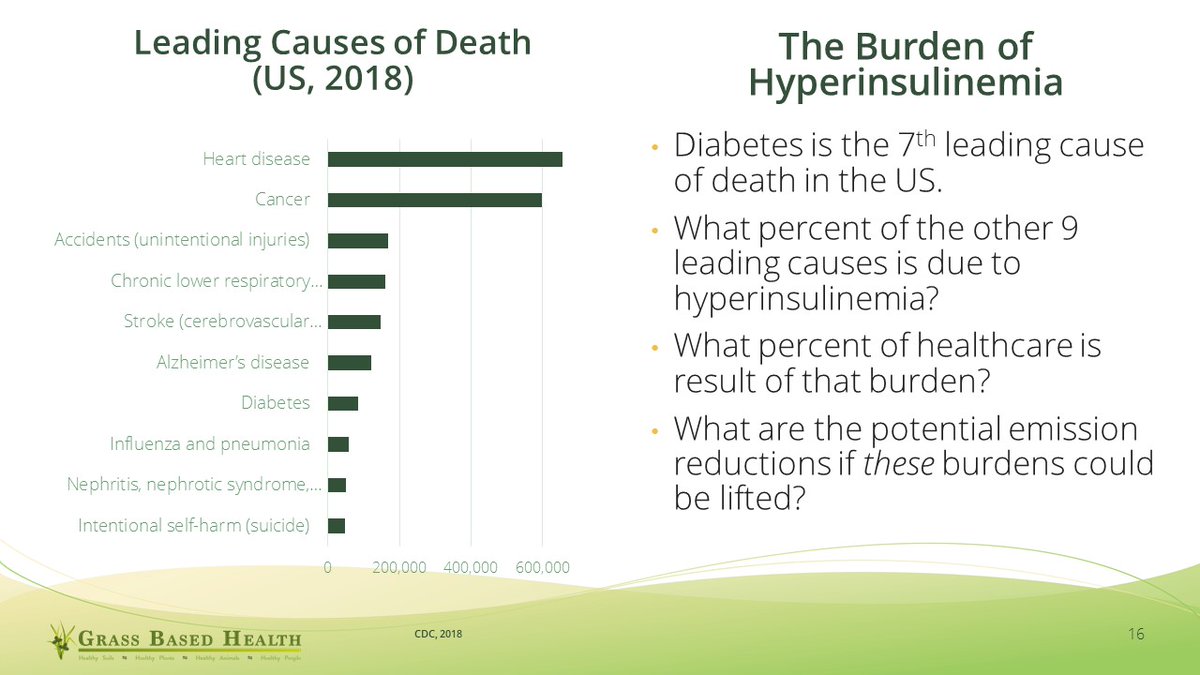1/n Food for thought:
An understanding of metabolic health and a species appropriate diet hasn't informed conversations about sustainable health care. The "downstream" effects of food choices are usually informed by the received wisdom of the official "healthy diet."
What if:
An understanding of metabolic health and a species appropriate diet hasn't informed conversations about sustainable health care. The "downstream" effects of food choices are usually informed by the received wisdom of the official "healthy diet."
What if:
2/n
So what if, just speculating wildly here, what if there was a way for people with T2D to stop using those medications? I know, that sounds like crazy-talk, but hear me out.
Big numbers and unfamiliar units are sometimes hard to visualize, so here's one equivalent:
So what if, just speculating wildly here, what if there was a way for people with T2D to stop using those medications? I know, that sounds like crazy-talk, but hear me out.
Big numbers and unfamiliar units are sometimes hard to visualize, so here's one equivalent:
3/n
And another (I'll add more).
Remember:
- These figures are *just* for the diabetes pharmaceuticals
- These figures do not include medications for related metabolic diseases.
Please note: These are preliminary figures. I've asked folks to check my work.
And another (I'll add more).
Remember:
- These figures are *just* for the diabetes pharmaceuticals
- These figures do not include medications for related metabolic diseases.
Please note: These are preliminary figures. I've asked folks to check my work.
4/n
In the US, Transportation & Electricity each account for 28% of Anthropogenic Greenhouse Gas emissions. All of agriculture = 9% (with animal ag being 4% of total, beef being ~2% of total).
In the US, Transportation & Electricity each account for 28% of Anthropogenic Greenhouse Gas emissions. All of agriculture = 9% (with animal ag being 4% of total, beef being ~2% of total).
5/n
To be clear, this isn't about denying anyone essential medications, nor should it suggest that every person with Type 2 Diabetes could eliminate all their medications.
The point is that there's good news. Individuals can improve their health AND lower their emissions.
To be clear, this isn't about denying anyone essential medications, nor should it suggest that every person with Type 2 Diabetes could eliminate all their medications.
The point is that there's good news. Individuals can improve their health AND lower their emissions.
7/n
Everyone who can should pursue improvements in their energy efficiency. (But pleases remember that ~45% of humanity consumes less than 1,000 Kw/hr of electricity per year.)
Everyone who can should pursue improvements in their energy efficiency. (But pleases remember that ~45% of humanity consumes less than 1,000 Kw/hr of electricity per year.)
8/n
*If* it's possible to restore your metabolic health through effective lifestyle intervention (including a species appropriate diet) AND reduce your "footprint," isn't that good news? Shouldn't more folks be aware of it?
*If* it's possible to restore your metabolic health through effective lifestyle intervention (including a species appropriate diet) AND reduce your "footprint," isn't that good news? Shouldn't more folks be aware of it?
Showing work (a for conservative estimate):
US pop = 331,002,651 per https://bit.ly/3oedYh4
9.4% diabetic, 90% of those T2D per https://bit.ly/3o4ziWm
80% of diabetics taking medication per https://bit.ly/3qizSBJ
2 metric ton CO2e / person w/ T2D per http://bit.ly/2lAyuO5
US pop = 331,002,651 per https://bit.ly/3oedYh4
9.4% diabetic, 90% of those T2D per https://bit.ly/3o4ziWm
80% of diabetics taking medication per https://bit.ly/3qizSBJ
2 metric ton CO2e / person w/ T2D per http://bit.ly/2lAyuO5
Greenhouse Gas Equivalencies Calculator - https://www.epa.gov/energy/greenhouse-gas-equivalencies-calculator
13/n
A few more, for review, in case it comes up...
Always look for the actual numbers, not those that have been popularized...
A few more, for review, in case it comes up...
Always look for the actual numbers, not those that have been popularized...
15/n
Do not accept GLOBAL values as representing individual countries.
Also, recognize what the trends are in different countries/regions.
Do not accept GLOBAL values as representing individual countries.
Also, recognize what the trends are in different countries/regions.
16/n
People have estimated the potential benefit of eliminating livestock agriculture (note that the animals don't get to hang around...).
No one can objectively say that the potential benefits outweigh the potential costs.
http://www.pnas.org/content/pnas/early/2017/11/15/1707322114.full.pdf
People have estimated the potential benefit of eliminating livestock agriculture (note that the animals don't get to hang around...).
No one can objectively say that the potential benefits outweigh the potential costs.
http://www.pnas.org/content/pnas/early/2017/11/15/1707322114.full.pdf
17/n
50 million metric tons of CO2e (POTENTIAL emissions avoided IF people with Type 2 Diabetes could eliminate their medication use) is equivalent to:
(this is "just" the emissions from pharmaceuticals, & "just" from T2D)
50 million metric tons of CO2e (POTENTIAL emissions avoided IF people with Type 2 Diabetes could eliminate their medication use) is equivalent to:
(this is "just" the emissions from pharmaceuticals, & "just" from T2D)
Slide set, not "slide side"...
*sigh*
*sigh*
19/n (the count's off by now... Sorry)
If the average American diabetic could eliminate their medication use, they would reduce their CO2e (“carbon”) footprint 29% MORE than if they switched from a high-meat to a vegan diet.
If the average American diabetic could eliminate their medication use, they would reduce their CO2e (“carbon”) footprint 29% MORE than if they switched from a high-meat to a vegan diet.
20/n
So far, this exercise has "just" been about the potential impact from reducing/eliminating diabetes medication use in the US. A perspective informed by metabolic health & species appropriate diet would lead us to estimate the impact reductions from treating hyperinsulinemia.
So far, this exercise has "just" been about the potential impact from reducing/eliminating diabetes medication use in the US. A perspective informed by metabolic health & species appropriate diet would lead us to estimate the impact reductions from treating hyperinsulinemia.

 Read on Twitter
Read on Twitter